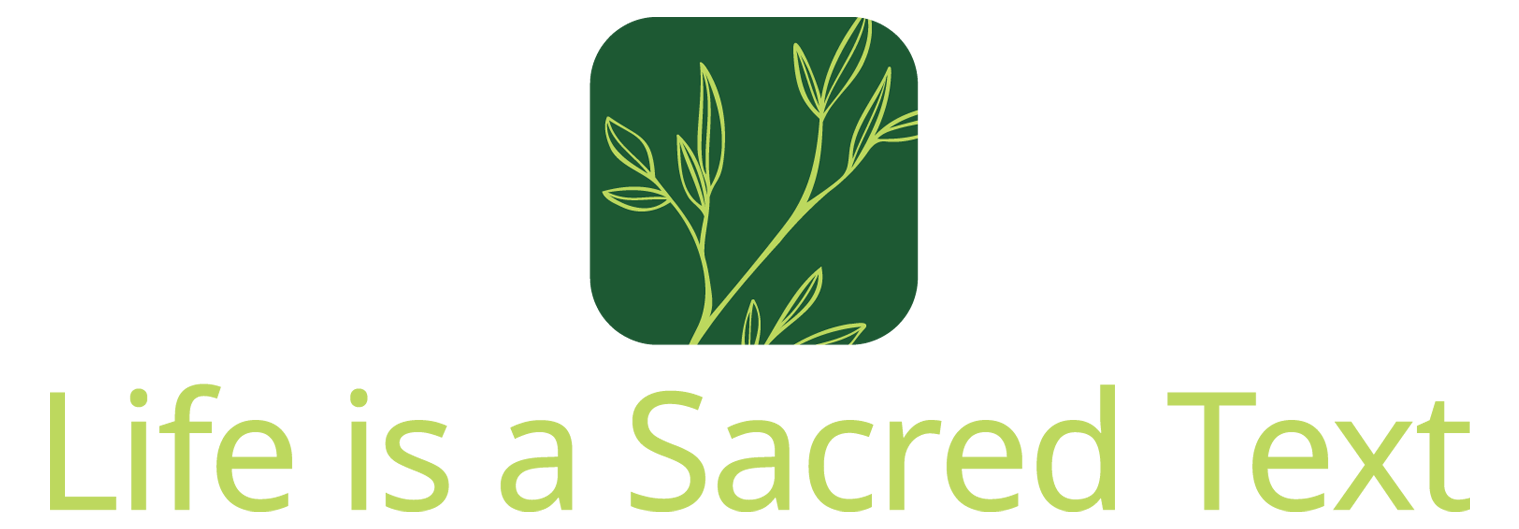God Didn't Say That
When Leaders' Biases Do Great Harm
This is Life as a Sacred Text, an expansive, loving, everybody-celebrating, nobody-diminished, justice-centered voyage into one of the world’s most ancient and holy books. We’re working our way through Exodus these days. More about the project here, and to subscribe, go here.
On the other side of the Red Sea, in the desert, Moses’s father-in-law Yitro comes to visit his daughter and son-in-law and finds Moses close to burnout, adjudicating every dispute among the million-plus Israelites in the desert. Yitro shows him how to refine his leadership model by delegating more of the work, uplifting the leadership of others, and not trying to carry all of the burdens of the community alone.
Over the period of several weeks, God leads the people to the base of Mt. Sinai and instructs Moses to help the Israelites prepare for the event that will define them as a people for the rest of time: The receiving of the Torah.
God tells Moses to make the people holy, sanctified, set-apart. The verse reads,
“God said to Moses, ‘Go to the people and make-holy them today and tomorrow. They should wash their clothes.’” (Exodus 19:10)
Yes, the smoother translation from the Hebrew here might be “sanctify,” but the root in Hebrew—kdsh, which forms words like kodesh, kiddush, and Kaddish— is very clearly “holy,” and here, for understanding what’s happening in these verses, I think it’s important to try to preserve that as much as possible.
It’s clear from the conjugation of the verb in Hebrew that Moses needs to do something to or for them. So then Moses goes back, and he does it! Sanctifies, makes holy, sets apart—whatever your best English understanding of the root kdsh might be. It’s still not clear what the action is, but he does it. And, as instructed, laundry happens, too.
“Moses came down from the mountain to the people and made-holy them, and they washed their clothes.” (Exodus 19:14)
But Moses keeps talking.
“And he said to the people, ‘Be ready for the third day: do not go near a woman.’” (Exodus 19:15)
“Don’t go near a woman??”
God didn’t say that.
Suddenly, Moses is only addressing men. Women have gone from being subjects—part of the people—to objects. Who are sexual temptations that must be avoided.

In one sentence, Moses simultaneously cuts women out of Revelation—men are suddenly the only audience of listeners—and turns them into sexual objects. Jewish feminist theologian Judith Plaskow refers to this as “one of the most painful verses in the Torah,” for good reason. Women aren’t the ones being told to prepare for Torah, here, after all. They’re just a problem. They become the object, not the subject, of the sentence.
Traditional commentators make sense of this by suggesting that kdsh is a command for Israel to attain a state of ritual elevation or purity, akin to where they must be to offer sacrifices in the Temple. Since seminal ejaculation would imperil that status, this line of thinking suggests, that’s what God meant.
The only problem with that apologetic is that kedusha is not that state. We have a word for that: Taharah. It is an entirely separate concept, and the Torah spells out a distinct and unique process for becoming tahor. Kadosh and tahor are not synonyms.
Moses inserted his human baggage into his command from God. Moses’ ideas about gender and power and hierarchy and sex and who matters got in the way of his work as a prophet—to communicate the will of the divine to the people.
Consciously or unconsciously, he twisted instructions from the Holy One to suit his agenda. Even on the edge of Revelation, even the man who, the Torah teaches, spoke to God face to face, is unable to pass on the pure word of the Divine without inserting his own biases.
Leaders do this.
Movements do this, too. Movements for justice are plagued constantly by their own limits, bias, baggage.
The Second Wave feminist movement, for example, was sparked by Betty Friedan’s 1963 book The Feminine Mystique, about the dissatisfaction that “American women,” felt with life as stay-at-home mothers and housewives in the 1950s and 1960s—
“She was afraid to ask even of herself the silent question –‘Is this all?’”
Friedan’s work—and much of the feminist activism it generated, was eventually criticized, rightly, for ignoring the experiences of Black women, other women of color, and poor white women.
Many wealthy white women, indeed, struggled with deep questions of purpose and meaning and longed for the opportunity to work outside the home—but many other women were in fact already working outside the home, and never had the luxury of the idle dissatisfaction felt by those in Friedan’s focus.
And, more to the point, as bell hooks put it in her 1984 Feminist Theory: From Margin to Center, Friedan
“did not discuss who would be called in to take care of the children and maintain the home if more women like herself were freed from their house labor and given equal access with white men to the professions. She did not speak of the needs of women without men, without children, without homes. She ignored the existence of all non-white women and poor white women. She did not tell readers whether it was more fulfilling to be a maid, a babysitter, a factory worker, a clerk, or a prostitute than to be a leisure-class housewife.”
The assumptions underlying The Feminine Mystique—which I do believe was important for many reasons, even as it was problematic for others—are still manifest in strains of contemporary women’s empowerment culture. We continue to see go-girl, Lean In, individualistic, capitalistic narratives of personal success everywhere—it’s feminist as long as there’s a woman in charge!—in ways that neither address systemic issues that lift everyone’s boat, like (even in privileged workplaces) family leave policies, salary equity, and divorcing white supremacy culture, for example—nor engage with the questions that hooks had asked 38 years ago, and other BIPOC women had asked even before that.
It plays out in the ways in which #MeToo—a movement started by Tarana Burke, a Black woman—was co-opted by wealthy, white, often celebrity victims and survivors, ignoring, as Burke herself has observed,
“women of color, trans women, queer people… Indigenous women. Their stories go untold.”
It played out when the abortion justice movement used the language of “choice,” (when not everyone has choices, the same choices, not by a long shot). When they denigrated the voices and leadership of those most impacted—disproportionately Black, Indigenous, and other people of color communities, immigrants, young people, and those struggling to make ends meet—and missed the importance of key factors, like structural racism and economic disenfranchisement. And that trans men and some nonbinary people need abortion access, too. And for too long, parts of the movement missed that rights didn’t mean much without access—and that while those with money will always have abortion access, that’s not the case for so many others.
It is all too easy for leaders seeking justice to center their own perspectives, missing the question of who else is standing there, at the base of the mountain, waiting to experience revelation, connection, covenant.
Here, Moses makes this error—inserting his own issues into a command straight from God!—when he is fresh from his new, improved, more egalitarian leadership model, thanks to Yitro. Even then, he does great violence to God’s command, which involved serving and care for his entire community, valuing all of its members.
Sometimes revolutions in leadership aren’t very revolutionary at all.
Moses’ failure here can show us the limits of the leadership he had, the voices he was hearing—or, the voices he was lifting up to lead. Leaders must do better.
Painfully, the Rabbinic commentators who could have pounced on the discrepancy—they’re very good at that—did, instead, the very same thing. They may have noticed something fishy in these verses but, as it happened, Moses’ interpolation suited their own ideas about gender and power so they justified it, excused it, rationalized it and ignored its impact on women. Like so many people in positions of power or leadership today, they ignored, minimized, explained away this violence in service to those in leadership, and the structures of power themselves.
Interestingly, a lot of the English translations of kdsh in these verses actually echo the concern with ritual impurity that doesn’t exist in the plain meaning of the text, and insert it into the translation; they choose words that would be better translations of tahor, like that God tells Moses to “warn the people to stay pure.” There’s no warning! And there’s no purity! But the people involved in translation must make decisions about whether they uphold or challenge Moses’ imposition into the text—and many of them choose to uphold it, just as many of us, consciously or unconsciously, support a dominant paradigm if it meets our own needs, never asking hard questions about what’s really being said, or what isn’t.
As it happens, we see kdsh come up elsewhere, most notably in the Holiness Code, the metaphoric and literal heart of the Torah, found in the center of Leviticus. And the use of kdsh here is explicitly not about ritual purity. Rather, God commands Moses:
“Speak to the whole Israelite community and say to them: You shall be holy, for I, God your God, am holy.” (Leviticus 19:2)
What is the Holiness Code about? Primarily, social justice and preventing sexual abuse.
You can’t make this stuff up.
The use of kdsh in Leviticus makes it clearer even still that when God asked Moses to kdsh the community, to make-holy them, it was about the whole community, in its fullness, safety, each member created irreplaceably in the divine image.
“For I your God am holy.”
We must do work that is no less than to go back to the base of Sinai and re-receive Torah anew. This time with God’s intended meaning—in a way that sanctifies every single one of us. All of us together. The whole community.
We shall be holy, for God is holy.
Some resources:
Learn about the Black Women’s Reproductive Justice Policy Agenda, and the work of Reproductive Justice generally (a whole important movement).
Tell your senators to pass WHPA, which will make abortion rights the law of the land, regardless of what SCOTUS does (it has already passed the House. This is critical, and not a drill.)
We also must get the EACH Act moved forward, which would significantly expand abortion access (because, again, rights are critical but they must come with access.) You can read abortion stories at We Testify, and hear a few stories on video here, here, and here.
See how the National Domestic Workers Alliance and Care in Action build power.
Get to know some of the work addressing Missing and Murdered Indigenous Women, Girls, and Trans, and Two-Spirit people.
Tarana Burke founded an organization, called me too. that seeks to “to reframe and expand the global conversation around sexual violence to speak to the needs of a broader spectrum of survivors, including young people, queer, trans, and disabled folks, Black women and girls, and all communities of color.”
Like this? Get more of it in your inbox every week.
For free every Monday—sign up at the ‘Subscribe now’ button just below.
And you can get even more as part of a community of rabble rousers going deep into the questions and issues, with even more text and provocation, every Thursday.
And please know that nobody will ever be kept out due to lack of funds. Just email lifeisasacredtext@gmail.com for a hookup.
And if you’d like to underwrite one of these donated subscriptions, you can do so here.
And if it resonated with you, please share this post:
Sending a big pile of blessings and goodness your way.

